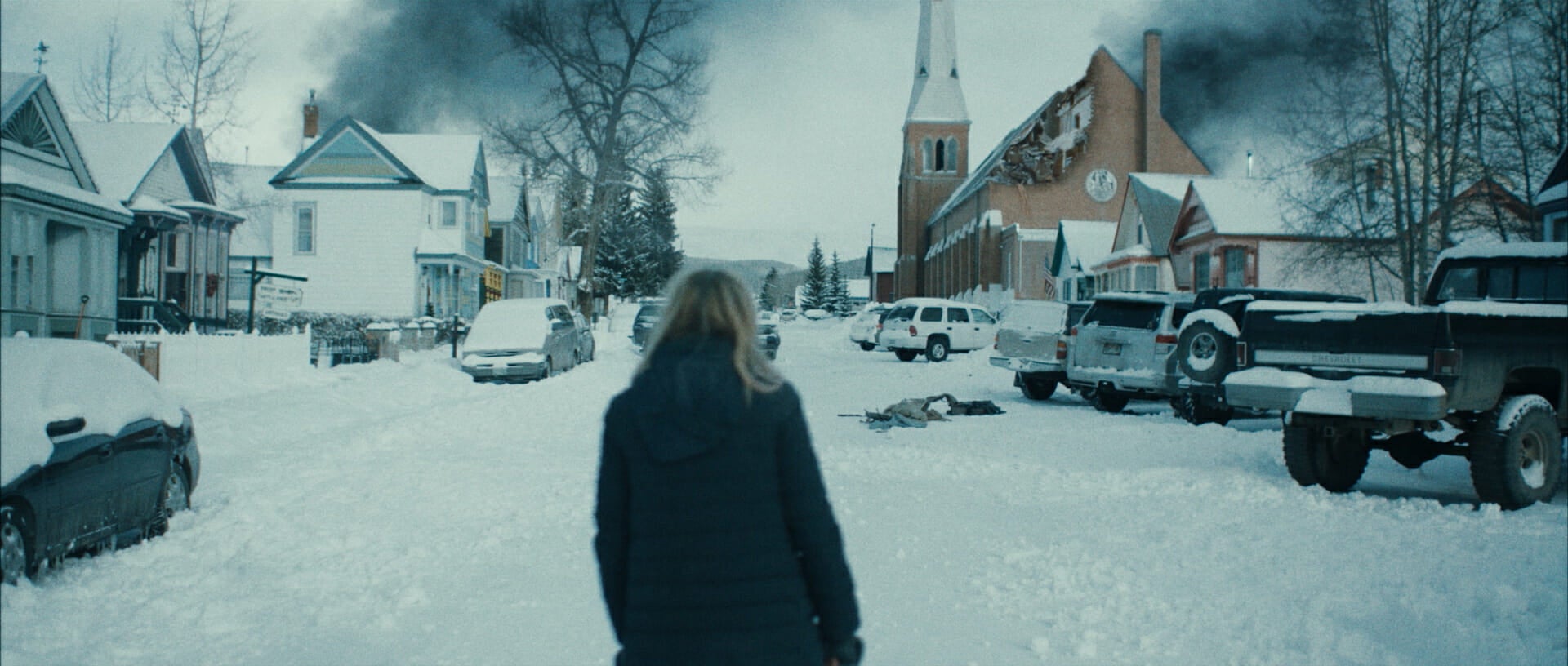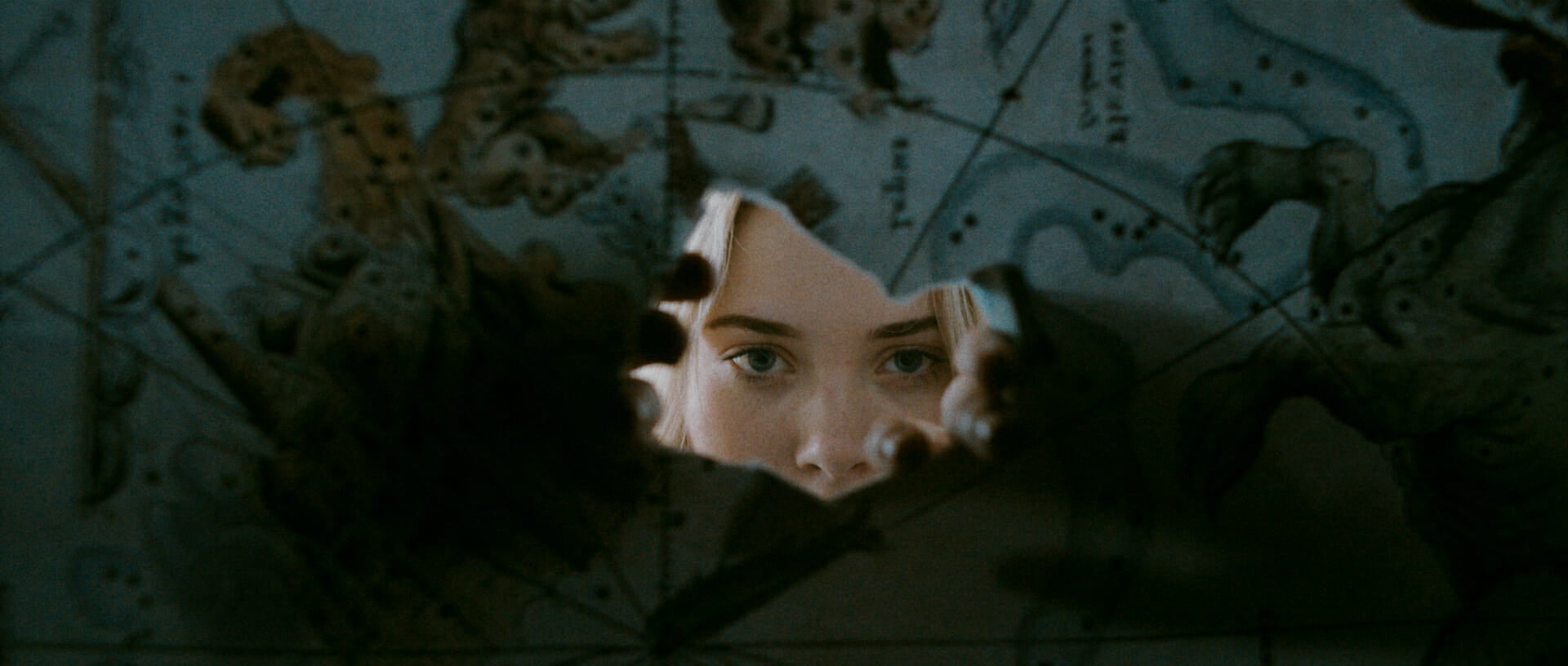For his directorial debut, A.T. White delivers a somber piece of Lovercraftian horror that examines grief, nostalgia, and our great inability to let ourselves be.

DIRECTOR: A.T. White
Virginia Garnder leads a compellingly human sci-fi/horror that focuses on the monsters within ourselves.
At the beginning of Starfish, Virginia Gardner’s Aubrey breaks into her recently deceased best friend Grace’s small-town apartment and spends the night, only to wake up to find the world ending. She’s trapped in a literal prison of her own remorse. Escaping the clutches of an unearthly monster, Aubrey finds that Grace had inadvertently opened a gateway to another world by examining alien frequencies. Thankfully, she also knows how to close it, and has left a trail of mixtapes for Aubrey to find around the town that will, when played together, close the gate and forgo the apocalypse.
Similar to Alex Garland’s Annihilation and John Krasinki’s The Quiet Place, Starfish is a firmly humanistic and introverted story despite a much grander backdrop. Bellini the pet turtle aside, Aubrey spends much of the film alone, only occasionally sharing her thoughts out loud. She chooses solitude over dealing with the end of days, hunkering down and working through Grace’s cupboards and doing her best to ignore the vivid nightmares tied to the void left from her friend’s death.
Although she’s already proven herself in Marvel’s Runaways and last year’s Halloween, it’s her turn here that most clearly demonstrates Gardner’s abilities. Grappling with the cascading emotions of a deceased loved one leading straight to the literal end of days, Aubrey tells us everything while barely saying a word, carrying the mood and conveying the deep, indelible resentments she’s being forced to reconcile in her tired and forlorn eyes. Short vignettes sharply spliced into the plot teach us her most harrowing memories and force us to experience them as suddenly as she does.

Dedicated to his own best friend who passed away four years ago, White has stated he wrote the film as a way to work through his own grief. Composing in addition to writing and directing, the soundtrack is where one can feel the filmmaker’s anguish the most. Aside from the requisite jarring violin spurts for the few jump-scares, the original compositions are gentle and melancholic. The mixtapes Grace has left contain the special frequency mixed into a song, and just as Aubrey briefly becomes enamored with one of their favorite garage rock tracks, White’s pensive strings and piano take over, almost as if he can’t bear to hear these songs any more than Aubrey can.
A desolate sentimentality hangs over Starfish; the only other indoor locations are the local movie theater, grocery store, library, and radio station. The kind of places young friends hang out and make memories together, where promises of forever-togetherness are made and where, when time has had its wretched way, feel as empty and disheveled as when Aubrey wanders through them mid-rapture.
In fact, the only real major flaw is the slow-burn opening, showing Grace’s funeral before Aubrey exits to grieve privately amid Grace’s things. Almost the entire first act is spent watching the remaining half of the best friends sift through her impossibly gone companion’s things for any sliver of comfort. But even this has a thematic value, engrossing us in Aubrey’s broke-down world before reality kicks in that no matter what happens to us, life outside goes on.

Although containing massive behemoths and serpentine creatures, the scares that linger most are the segues and furiously cut montages of Aubrey’s mistakes. Resentment and heartache can be far more powerful, devastating, and terrifying than any inter-dimensional invader, as evidenced by the look in Aubrey’s eyes as she feels the pain all over again.
Aubrey’s visions become more bizarre and dreamlike toward the end, some even taking on a meta element. One stunning bit is done in animation, a perfect summation of her fleeting grasp on reality; after another she vomits, making abundantly clear the physical toll all of this is taking, even if she’s been unwilling to admit it.
All of which builds to a suitably dreamlike crescendo that rings out to the ethereal warbling of Sigur Rós’ Jónsi, a manifestation of what we all might wish could happen when in the throes of loss. “This Mixtape Will Save the World” Grace wrote on the first tape Aubrey finds. Starfish isn’t quite there, but through it, White seems to have saved himself, and that’s world enough.
Starfish is on a theatrical roadshow around the U.S. Dates are available here.

